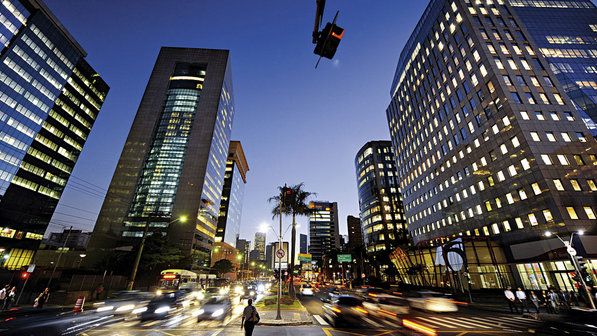While president Lula da Silva is canceling privatizations at the national level and causing big losses to the stock market, the governor of São Paulo, Tarcisio de Freitas (Republican), is doing just the opposite and has declared that he will initiate studies to privatize companies in the state of São Paulo.
For those who do not know what São Paulo city and state mean for Brazil, we compiled some comparisons that show the total dominance of this state; without it, Brazil is not much of a champion.
The list of superlatives of the city and state of São Paulo is long. Here are some numbers.
If the city of São Paulo were a country, its economy would be the 47th in the world, bigger than Egypt and Kuwait, for example, about the same size as Hungary, New Zealand or Israel.

The economy of the city of São Paulo would also be bigger than 22 U.S. states, such as Hawaii and New Hampshire.
If Greater São Paulo were a country would be the thirty-third richest nation in the world (in nominal GDP), ahead of the United Arab Emirates and Hong Kong, for example, and the twenty-eighth richest nation ahead of Belgium and Venezuela (in GDP PPP).
São Paulo is the best city to do business in Latin America and the best startup ecosystem in Brazil and Latin America in 2022.
The large growth of São Paulo’s GDP is due to the great economic potential of the city and the appreciation of the Brazilian real to the U.S. dollar.
According to PricewaterhouseCoopers annual economic growth of the city is 4.2%.
The São Paulo Stock Exchange (BM&F Bovespa) is Brazil’s official stock and bonds exchange.
The BM&F Bovespa is the largest stock exchange in Latin America and the third largest worldwide.
The new governor has announced that he will conduct studies on the privatization of the São Paulo State Basic Services Company (Sabesp).
Tarcísio said he intends to universalize water supply and wastewater collection and treatment in the state from 2033 to 2027. To achieve this, the possible privatization of Sabesp has been considered, among other options.
Another privatization Tarcísio is planning concerns Emae, the municipal water, and energy company responsible for regulating the level of the Pinheiros River and generating energy in some plants such as Henry Borden.

